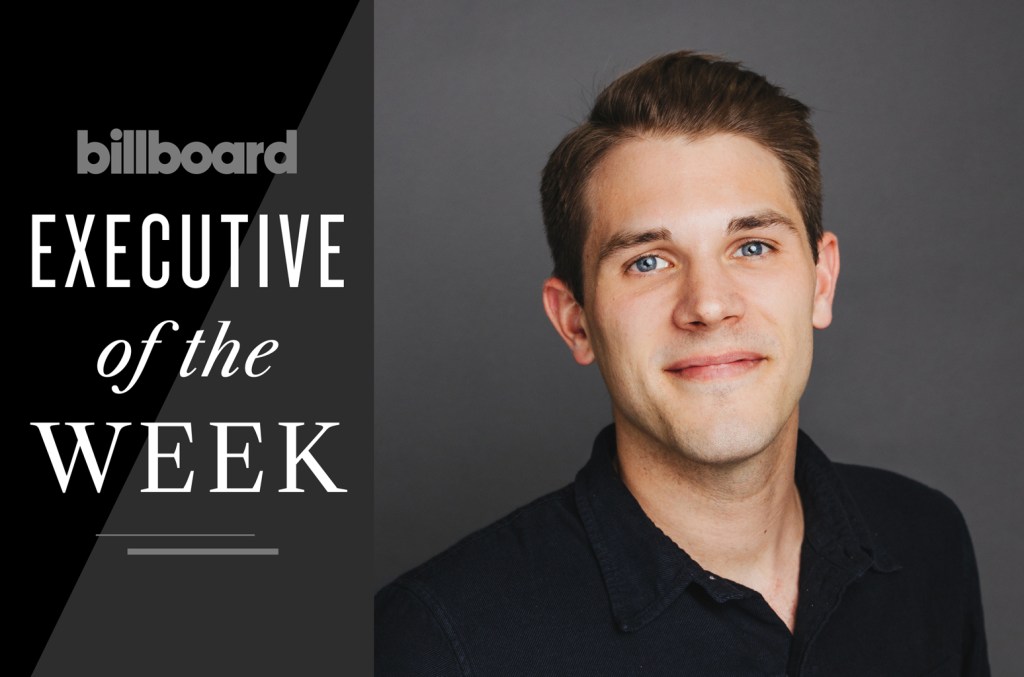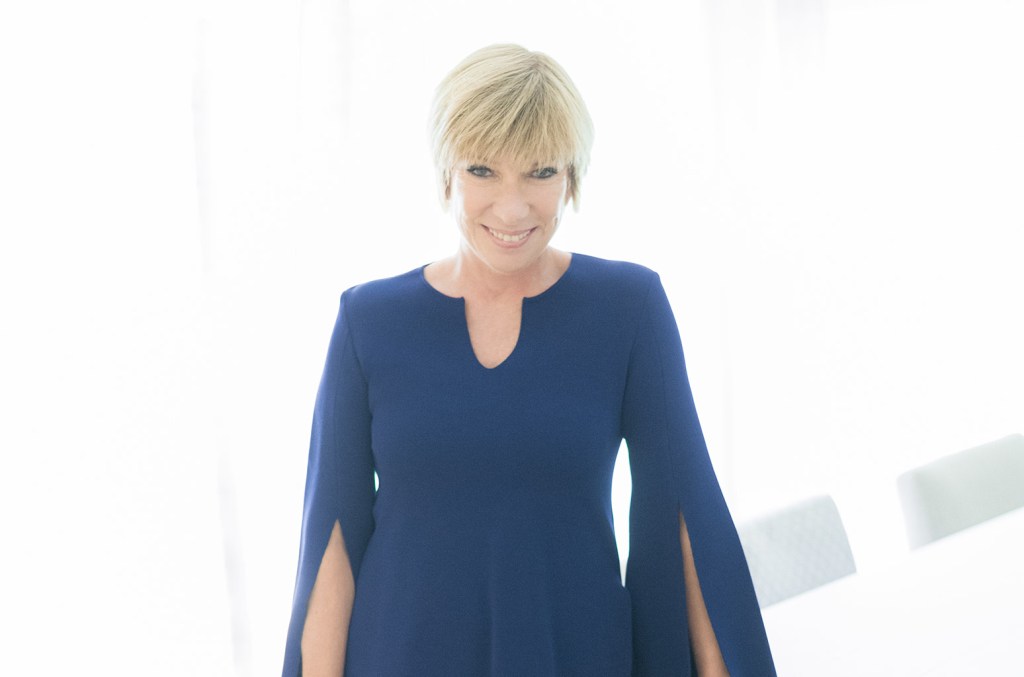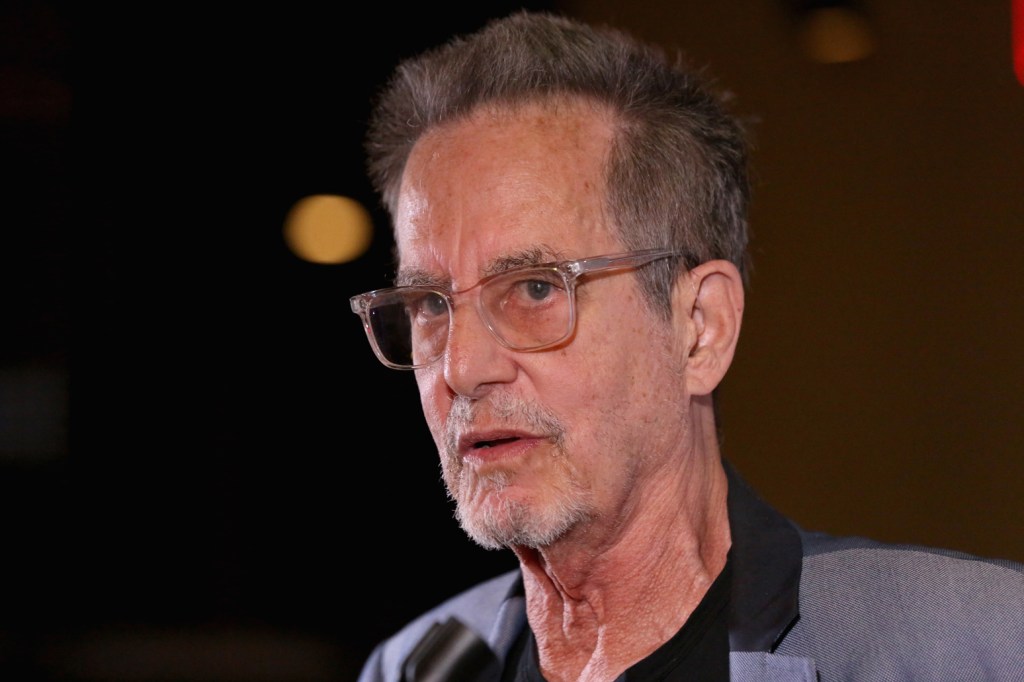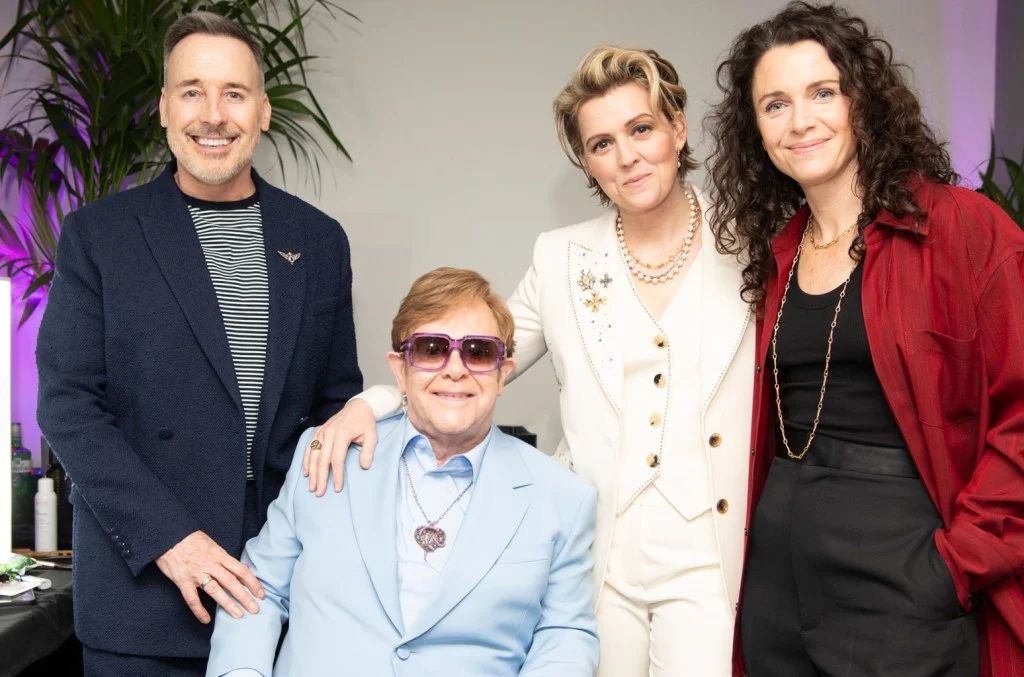Management
Page: 2
The Morgan Wallen juggernaut soared even higher this week as his new album, I’m the Problem, only proved problematic for its chart competitors.
The Big Loud/Mercury set debuted at No. 1 on the Billboard 200 with 493,000 equivalent album units, according to Luminate, making it the biggest week for any release this year. Additionally, Wallen broke his own record with 37 songs on The Hot 100, taking up more than a third of the chart with his titles alone and claiming the Nos. 1, 2 and 3 spots, the first for a country artist.
The album, which has already logged three No. 1s on the Country Airplay chart, also debuts at No. 1 on Top Country Albums, knocking Wallen’s 2023 set, One Thing at a Time, out of the top spot and his 2021 album, Dangerous: The Double Album, down from No. 2 to No. 3.
Internationally, Wallen scores his first No. 1 on the U.K. Albums chart, besting One Thing at a Time, which debuted at No. 40. And all that activity helps earn Kolby Vetter, Wallen’s day-to-day manager at Sticks Management, the title of Billboard’s Executive of the Week.
Trending on Billboard
Here, Vetter — who previously worked at Wallen’s booking agency, the Neal Agency, as well as Red Light Management and CAA — details the album’s rollout and how Wallen is leading the way domestically and internationally. “For the country genre as a whole, there has always been this myth that country music has a cap globally,” he says. “That glass ceiling is being shattered, and I think Morgan is leading the charge on that.”
I’m The Problem debuted at No. 1 on the Billboard 200 and Top Country Albums. What decisions did you make leading up to the release that you felt would increase its chances for a No. 1 debut?
You can do all the planning and strategizing in the world, but at the end of the day it comes down to the music and how it resonates with people. I think everyone knew from the get-go the songs that Morgan was putting on this record were going to be strong and relatable. He spent a lot of time writing and crafting every detail of this project, and I think it shows.
The album is a joint project between Big Loud and Mercury. What was the division of duties between the labels?
There were a lot of different perspectives from a whole lot of smart people in a room together. Some of the best ideas for this album rollout came from the time spent sitting in a conference room together, bouncing ideas off of each other, each of us being unafraid to dream big. This whole project was a total team effort. Working with Seth England and his team at Big Loud was great; they’ve been with Morgan from the very beginning, which is a huge asset. Then you bring in guys like [Mercury’s] Tyler Arnold and Alex Coslov, who are responsible for building the careers of so many artists outside of the country format, and it becomes obvious why they are so successful.
I’m the Problem also debuted at No. 1 on the U.K. Albums chart, marking Wallen’s first No. 1 on that chart and a huge leap after One Thing at a Time debuted at No. 40 there. How did playing London’s Hyde Park last summer play into the plan for the U.K. and what other steps did you take to land such a high debut?
[Hyde Park] was a massive moment that really cemented Morgan’s status as a superstar in the U.K. and beyond. It was also a time for us as his team to sit there and think, “What’s possible here?” It’s really a testament to [Wallen’s manager and booking agent] Austin Neal and the strategy he has put in place from a touring perspective. The sky is the limit. And just for the country genre as a whole, there has always been this myth that country music has a cap globally. That glass ceiling is being shattered, and I think Morgan is leading the charge on that.
The album also debuted at No. 1 in New Zealand, Australia, Norway, Scotland and Canada. How will you continue to support the album and build his international career? When will his next global tour be?
We have an insanely talented international team with the folks at Big Loud/UMG and our internal team at Sticks Management. They are always combing through data and finding areas where growth is happening and where the next pop off could be. We’re able to draw from that data to formulate unique ways to break the market. Interesting enough, Morgan is seeing real growth in China. The tour is being worked on currently, but plans are coming together for an international run in 2026.
Wallen played an intimate show at London’s Roundhouse on Wednesday (May 28). How is that furthering his U.K. base or was that show mainly for the U.K. industry?
The idea for this show started way back in January. Last album cycle Morgan played a free show in Nashville at Bridgestone Arena, and it was a massive success. I don’t think I have ever seen a longer line. This time we thought it would be cool to go play a stripped-back set in an intimate setting where fans could get up close and personal. Morgan hasn’t played a room of this size in years, so I think it’s a cool moment for him as well to go back to where he started, and to be in a room where he can see the face of every fan.
Wallen is the first country artist to claim the Nos. 1, 2 and 3 spots on the Hot 100 with his duet with Tate McRae, “What I Want,” at No. 1. He told Billboard that he found out about Tate from his sister. What were the next steps after that with her camp to have the duet happen?
That one was all Morgan. They have known each other for a couple years and have been discussing a collab when the right song presented itself. As Morgan has said, “What I Want” wasn’t written as a duet but rose to the forefront and felt like the perfect match for them. Vocally it’s powerful, and they complement each other very well. We’re really excited to see what this song will do.
Was there any discussion that 37 tracks may be too many, or given that One Thing at A Time had 36 tracks and was still at the top of the charts, has the belief always been bigger is better?
I think we all knew this album would have a good number just by what we were hearing coming out of the writing rooms. So many great songs. They went into the studio and cut 50 tracks and worked back from there. If there is one thing I’ve learned about Morgan since working together, it’s that he is extremely tuned in. If there was any song that he didn’t feel totally great about or it didn’t feel like the right time for the song, it didn’t make the cut. Morgan has earned the right to that creative freedom. He had a lot of things to say on this album, and I think the 37 songs he chose to include reflect that.
Hundreds of country artists, from superstars to new aspirants, will spend June 5-8 saying thanks to their fan base and working to build new audiences when an expected 90,000 daily visitors attend CMA Fest in Nashville.
But for most of those artists, there’ll be one or more people at their side who are likewise invested in making the most of the annual event. Managers benefit when their artists expand their fan bases and increase consumption, driving up ticket prices and boosting merchandise sales.
Thus, those managers are focused on maxing out the connection their acts make with consumers during CMA Fest, but they have other interests during the festival, too: evaluating the market, networking with industry contacts and checking out other artists they might want to sign.
Trending on Billboard
“I can go around town and see 20 things in a day instead of having to take 20 days to see 20 things,” says Play It Again Music GM Cade Price, who manages Dylan Marlowe, Faith Hopkins and Slater Nalley. “It’s not like we’re trying to go sign anything and everything, but it’s CMA Fest. I think we do ourselves a disfavor if we don’t go out there and see. You just never know who you’re going to stumble onto.”
Fans have a good idea of the artists they may see. Nightly concerts at Nissan Stadium are one of the primary attractions for CMA Fest, an annual event since 1972 that has generated a summer network TV special for more than 20 years. Keith Urban, Cody Johnson, Rascal Flatts, Jason Aldean, Scotty McCreery, Luke Bryan and Blake Shelton are among the nearly 30 artists slated for the stadium main stage this year.
But while the football field garners the most attention, some of the most important work of CMA Fest occurs during the day at nine smaller festival stages, plus a bundle of unofficial adjunct performance spots. Those platforms help new and developing artists, in particular, showcase their talents to consumers in their target audience who may not otherwise be fully aware of them. This year’s participants on those building stages include Bryce Leatherwood, Charlie Worsham, Cooper Alan, Crowe Boys, Hudson Westbrook, Madeline Edwards and Tyler Braden.
It’s a massive opportunity for fans to experience artists they don’t know well and, in turn, a prime chance for artist managers to get a big-picture assessment of country’s most avid fans.
“It’s always kind of fun to observe the people that come in and get a good idea of what the country fan base looks like at that point in time,” says Champ Management founder Matt Musacchio, who counts Vincent Mason, Jessie James Decker, Dawson Anderson, Abbie Callahan and Sons of Habit as clients. “You see how the fan base differs from artist to artist and stage to stage, depending on who’s playing.”
Unlike their artists, most managers are able to blend in with the crowd, and it provides them a great opportunity to move across the Downtown Nashville footprint. Much of their day is spent shepherding their acts through their schedules, and they’re bound to encounter other executives and musicians they already know backstage. But most have some breakaway moments when they can check out other performances and new amenities, where they’re likely to run across industry contacts.
“For me personally, it was massive,” says Los Angeles-based Type A Management founder Alex Lunt, who attended his first CMA Fest in 2024 with Dasha. “It was an amazing opportunity to really just tap in with the entire country community because you have everybody. You even have all the coastal label execs there. They’re all going to come to CMA Fest.”
The scouting gives a better sense of the opportunities, too. That’s particularly valuable as their artists return year after year and their goals change. Lunt’s first experience a year ago, when Dasha’s single “Austin” was breaking out, was an overload.
“Last year, we were just kind of like a fire hose to the mouth and saying yes to everything,” he notes.
Dasha played two songs on the spotlight stage at the stadium, the first time she had performed for an audience of 50,000. But she also packed some of the smaller adjunct events in Nashville bars. For this year, they focused more on branding, creating a line-dance experience at the Whiskey Bent Saloon.
“She’ll have her Coyote Ugly moment, perform on the bar and do a couple numbers,” Lunt notes. “We just wanted to give her her statement, and we’re calling it ‘Dashville’ because her whole tour is basically called ‘Welcome to Dashville.’”
For managers with years of CMA Fest history, every iteration brings new perspective on the format and their clients.
“It’s fun to see the artist’s career grow incrementally with what they’re doing at CMA Fest every year,” Musacchio says. “It’s always, I think, a good gauge of how the last year has been and where things are going, and kind of where the artist sits in the grand scheme of things.”
It’s also a great motivator for manager and artist. The large turnout from the country audience invariably reminds participants how many consumers are willing to invest in the genre. But it also offers a physical reminder of how many artists are competing for those listeners. Hopefully, both the manager and the artist find motivation in that part of the experience.
“It makes you think about how much new music is being released each week,” Price says. “That’s allowing us to see that and gets our minds going: ‘What do we need to be doing to stand out in the crowd?’”
GTS (Global Talent Services), Universal Music’s Latin talent management and services company, has fully acquired respected music management company RLM (Rosa Lagarrigue Management).
As a result of the acquisition, RLM founder, veteran artist manager and promoter Rosa Lagarrigue, will join GTS as executive vice president global, reporting to Narcís Rebollo, president and CEO of GTS. Likewise, RLM’s team will also be integrated into the company.
Founded in 1980 by Lagarrigue as one of the first management companies owned by a woman, RLM has had a role in developing the careers of artists like Miguel Bosé, Alejandro Sanz and Mecano, among other Spanish icons. The company’s current roster includes Raphael and Rozalén among many others.
Trending on Billboard
Joining GTS is meant to maximize and improve the services provided to RLM’s artists in addition to bringing Lagarrigue and her team’s expertise to GTS.
Founded in 2011, GTS has grown to have presence in Spain, Portugal, the U.S., Mexico, Colombia, Argentina, Chile and Brazil and its roster includes Aitana, David Bisbal, Ela Tauber, Lola Indigo, Pablo Alborán and Vivir Quintana among many others.
“With her extensive experience, knowledge, and track record, Rosa is a key and respected figure in the management world, and this addition to our organization is a further investment in our position as a leading Talent Management and Services Company in Latin Music today,” said Rebollo in a statement. “I am convinced that the integration of our teams will provide each of our artists the best service and strategic support to achieve their goals across all markets.”
Added Lagarrigue: “I have always believed that every artist needs unique and personalized support; one that combines listening, intuition, strategy, and honest work. I’m excited to share this project with Narcís, undoubtedly one of the most brilliant executives in the industry, and with his team. What we started at RLM not only continues, but it is amplified and strengthened alongside them.”
In the first quarter of the year, a significant number of high-profile acts have made changes to their management teams.
At the top of 2025, Gigi Perez, known for her viral hit “Sailor Song,” parted ways with Laffitte Management Group and The Chainsmokers and longtime manager Adam Alpert dissolved their management deal though the chart-topping dance act is still represented by Alpert’s Disruptor Records and remain partners in several other ventures.
In February, Lil Nas X parted ways with Adam Leber‘s Rebel and signed with Crush Music for management. Then in March, Billboard’s Women In Music executive list revealed that Janelle Lopez Genzink, founder and CEO of Volara Management, the firm behind superstar Sabrina Carpenter, signed longtime free agent HAIM, which The Azoff Company’s Full Stop formerly represented. That same month, Noah Cyrus signed a management deal with Range Music, having formerly been represented by TaP.
And in the weeks following Q1’s close, Best Friends Music lost three high-profile clients: Billie Eilish and Finneas parted with Best Friends co-founders/co-managers Danny Rukasin and Brandon Goodman to sign with Sandbox Entertainment’s Jason Owen; and Rukasin’s rising star client Role Model departed, too. In late April, Chappell Roan’s new management team was finally announced — led by Foundations Music’s Drew Simmons — after the artist parted with State Of the Art last November. And at the top of May, Billboard reported that Camila Cabello and her longtime manager Roger Gold had split.
Trending on Billboard
Artists swapping managers is hardly a rare occurrence. As one 20-plus-year veteran of artist management says, “Working with high-profile pop artists can be incredibly stressful, especially when things start to go wrong — it can feel like you’re in a sinking ship and can’t find where the water is coming in.”
Having managed some of the biggest acts of the mid-2000s, the veteran manager has seen their fair share of shakeups. But they argue that what has changed in the field is the job’s visibility – and scrutiny. “Social media has made it much easier for a manager to position themselves as a public figure, and some, Scooter [Braun] being a good example, understood that world and navigated it in a really smart way. And I remember watching it over time — it was such a different approach to using persona as a way to complement the business that you’re trying to build.”
And now, the industry itself is giving the field a bigger platform. “You have places like ROSTR, which I think has made it really easy and accessible for a passive participant in the industry to be aware of information,” continues the source. “And the passive participant probably creates a much different echo chamber than historically the people who read [trade publications].” (To prove their point, the popular X account PopCrave, known for posting surface-level updates across pop culture, shared the news of Roan’s new management setup.)
The longtime manager/label executive agrees that social media has altered the playing field. “We’re constantly comparing and looking at how someone is doing better than us. Managers, writers, producers — we’re all looking at it. I have producer clients that see other producers posting cuts and then they’re [feeling] down. Artists do that as well, and I think the manager is typically the first to blame and the easiest to get out of a deal because we don’t have the contracts that a label or a publisher has. Agents and lawyers do, too, but they get fired all the time and no one knows about it.”
Given the recent spate of shake-ups, the veteran manager says his profession needs to consider a core question: “When society and consumer behavior changes and evolves, how quickly do industries reassess?”
Some contend that reassessment is happening right now, with one calling Eilish and FINNEAS’ departure from Best Friends — where they had been since the beginning of their careers — “this natural tipping point of like, ‘Huh. Why?’”
“It’s social media,” argues the manager/label executive. “Artists are quicker to move on. And I do think that’s just the nature of society today and this instant gratification culture. Artist empowerment is phenomenal, [but] maybe this is a small downside to it, that artists think they know everything.”
Another source points to the ongoing reevaluation of remuneration as an underlying reason for recent changes. Traditionally, a music manager will receive a commission on all business in which an artist engages. But the fast-changing field – and music industry at large — is why some believe more artists want to build “in-house teams like Taylor [Swift],” according to the boutique firm owner. “They don’t want to pay commissions. They want to structure it differently.”
But, such an arrangement is typically reserved for music’s upper echelon, with the artist manager-executive saying, “it takes a rare artist in the sense that, economically, it makes more sense when you’re at a certain level to carry that overhead. If you’re playing arenas and stadiums, then that is probably something you should be thinking about. But at the same time, if you started your career with a manager and you’re 10 years in, I think that’s a rough time for you to be like, ‘Hey, by the way, I think you should switch to salary.’”
Which is why the boutique firm owner argues that “really good managers who do so much should actually participate more — and have equity. The label, the rest of the team, it’s all really driven by management. Fifteen percent [commission] is not [enough] to cover all the overhead and everything that you do for an artist and everything that the label doesn’t do.” (In the case of a management deal ending, they insist sunset clauses, in which managers are entitled to continued pay for a set period after an artist fires them, are “crucial.”)
It all adds up to a climate in which the veteran pop manager can’t help but wonder: “In a world where it is so easy for you to search out what other people are doing or how to do something [yourself], how manageable can a person be?”
With a new single already announced for the end of the month, Mark Tuan embarks on a fresh chapter by signing a new management deal ahead of a new, “raw and intimate” era.
Billboard can exclusively reveal that the Los Angeles singer-songwriter-model is teaming up with with Transparent Arts for his music career and other projects. Mark will release his new single “High as You” on May 30, to start the joint venture with the Asian American entertainment powerhouse. According to a press release, the new, alt-rock track “captures the essence of an unforgettable love — the only high he ever knew. With seductive melodies and striking choreography, Mark is ready to showcase a raw and intimate side of himself like never before.”
After reuniting with his K-pop boy band GOT7 for a new EP earlier this year, “High as You” is Tuan’s first solo release of 2025 and previews more music on the way.
Trending on Billboard
“I’m thrilled to partner with Transparent Arts and to step into a new phase of my journey as an artist,” Mark says in a statement. “‘High As You’ is just the beginning, and I’m looking forward to sharing more of this side of me with my fans.”
James Roh, COO of Transparent Arts, adds, “We’re thrilled to welcome Mark to our roster. As a fellow LA native, we felt an instant connection with him. He brings a rare blend of professionalism, talent, and authentic kindness. Working with Mark has been creatively fulfilling, and we can’t wait for the world to hear what we’ve been working on.”
After GOT7 opted not to renew its contract with JYP Entertainment in 2021, Tuan returned to LA to launch his solo career via the independent label Dreamers N Achievers (DNA), which he acts as CEO. The 31-year-old has balanced his indie projects like 2022 full-length, The Other Side, and his Fallin’ EP, from 2023, with GOT7 activities and fashion collaborations including an ambassadorship with Saint Laurent and partnership with Calvin Klein.
Founded by Billboard Hot 100 chart-toppers Far East Movement, Transparent Arts is a 360-degree entertainment company dedicated to amplifying Asian culture and talent worldwide through management, production, branding, and live events. Tuan joins a roster that currently includes Korean indie breakthrough band The Rose, Filipino superstar singer-actor James Reid, LA-based DJ and producer Yultron and more. Through over 15 years in the business, TA collaborators include artists like Bruno Mars, Marshmello, and Awkwafina, with Universal Music, YouTube, McDonald’s, and SM Entertainment listed as brand partners.
Earlier this year, Mark teamed up with his GOT7 band mates to drop its first project in nearly three years, Winter Heptagon, through a new partnership with Kakao Entertainment. The EP peaked at No. 16 on Billboard’s World Albums chart, becoming the group’s 20th entry. Meanwhile, lead single “Python” climbed to No. 4 on the World Digital Song Sales chart — GOT7’s strongest showing since 2021. The group celebrated with concerts in Seoul’s SK Olympic Handball Gymnasium arena and Bangkok’s Rajamangala Stadium, reportedly selling out the 85,000 seats for the latter within a day.
Brian Avnet, who began his long career as a road manager for Bette Midler and later managed such top acts as The Manhattan Transfer, David Foster, Josh Groban and Eric Benét, died in Los Angeles on Wednesday (May 14), after living with Parkinson’s disease for many years. He was 82.
Avnet was inducted into the Personal Managers Hall of Fame in 2017, in the same class as Sid Bernstein, Eileen DeNobile, Eric Gardner, Richard Linke, Lois Miller, Eliot Roberts, Dolores Robinson, Arthur Shafman, David Sonenberg, Rick Siegel and Jerry Weintraub.
Trending on Billboard
On hearing of his death, Linda Moran, CEO of the Songwriters Hall of Fame told Billboard, “Brian was loved by everyone who knew him. [He] was a familiar face at Atlantic and WMG over the years as most of his artists were signed there.”
Based in Los Angeles, Avnet was a personal manager for nearly 40 years. In addition to those named above, his clients also included Johnny Mandel, Herb Alpert and Lani Hall Alpert, Frankie Valli and the Four Seasons, Joshua Ledet, Cyndi Lauper, Take 6 and Jean-Luc Ponty.
Avnet worked with Midler in the early days, starting when she was playing bathhouses in New York before bursting to stardom in the early 1970s. Avnet served as general manager for Midler’s 19-show run at the Palace Theatre in New York in December 1973 for which she won a special Tony Award “for adding lustre to the Broadway season.”
He managed The Manhattan Transfer for 19 years starting in the late 1970s, including when they landed their biggest hit, “Boy From New York City.” That song made the top 10 on the Billboard Hot 100 in 1981 and won a Grammy for best pop vocal performance by a duo or group with vocal.
Avnet was a personal manager for Foster, a 16-time Grammy-winner. In that capacity, he worked on recording projects by such stars as Whitney Houston, Celine Dion, Toni Braxton, Natalie Cole, Diana Krall, Faith Hill, Brandy, En Vogue, Olivia Newton-John, The Bee Gees, Michael Bolton, All 4 One, Julio Iglesias, En Vogue and Smokey Robinson.
He played a key role in discovering Groban, whom he later managed. He found the singer through Seth Riggs, the top vocal coach, and brought him to Foster.
When Foster signed a deal with Warner Bros. in 1995, it enabled him to start 143 Records. Foster hired Avnet to run the label, with a roster that included Groban, Michael Bublé, The Corrs and Beth Hart. Bublé’s first three No. 1 albums on the Billboard 200 – Call Me Irresponsible, Crazy Love and Christmas – were released on the 143 imprint, as were Groban’s first two No. 1 albums on that chart – Closer and Noel.
The Corrs, a sibling pop band from Ireland, had three Billboard 200 albums while on the label; Hart, a Los Angeles-based singer/songwriter, had one.
Foster later sold the label back to Warner. On Sept. 20, 2001, Warner Music Group announced it was shutting down the label.
Avnet’s widow Marcia Avnet told Billboard that her husband grew up in Baltimore and started his career in theater. “He was the youngest theater manager,” she said. “Actually, he used to manage the theater in-the-round in Maryland and then he was roommates with Dustin Hoffman in New York. And Jon Voight. They were all roommates when those guys were doing summer stock. Brian was in management, he ran the ticket booth, did lots of different jobs.”
Early in his career, he served as producer of A Streetcar Named Desire starring Voight at the Studio Arena Theatre in Buffalo, N.Y.
He moved to Los Angeles in the early 1974 to work with Lou Adler on the production of the Rocky Horror Show, which played at The Roxy for nine months. It was turned into a film, The Rocky Horror Picture Show, the following year. The film has long been a cult favorite. Avnet also produced the rock opera Tommy in Los Angeles; and served as manager for the rock opera Jesus Christ Superstar at the Universal Amphitheater in Los Angeles.
He also managed the first season of the Universal Amphitheater.
Avnet worked with producer Robert Stigwood on Sgt. Pepper’s Lonely Hearts Club Band on the Road, an off-Broadway production which opened at the Beacon Theatre in New York in November 1974 and ran for two months. The show was loosely adapted into an ill-fated 1978 film version starring The Bee Gees and Peter Frampton.
Avnet frequently participated in events like Grammy Career Day. At a 2009 workshop, he served alongside such industry professionals as John Burk, Tom Sturges, Tina Davis, Rickey Minor, Harvey Mason Jr., Mike Knobloch and Javier Willis.
The Avnets were together for 36 years; married for 26 of those years.
“It was a really long career, and he was beloved,” said Marcia Avnet. “He never signed a contract with anybody. His word was his bond. And that’s really rare.”
Additional reporting by Melinda Newman.
Camila Cabello and her longtime manager Roger Gold have parted ways, Billboard can confirm. Gold (of Gold Music Management) has managed the star since the start of her solo career in 2016, around the time of Fifth Harmony‘s breakup. Cabello released her debut solo single, “Havana,” featuring Young Thug, the following year in 2017. The […]
Chappell Roan has new management. The fast-rising superstar has signed with Drew Simmons of Foundations Music, most known for managing Noah Kahan.
Foundations’ roster also includes Laufey, Rebecca Black, Wilder Woods and producer Gabe Simon.
Simmons, who is a partner at Foundations, announced the news on Monday (April 28) after beginning to work with Roan earlier in the year. To share the news, he posted the cover art for Roan’s 2023 debut album, The Rise and Fall of a Midwest Princess, on his Instagram. The caption read: “Thrilled to be working with Chappell Roan – it’s an honor to welcome her to Foundations.” Meanwhile, Foundations’ website features Roan on the homepage with the message: “Foundations welcomes Chappell Roan to the roster!”
Simmons also tagged the larger team, which includes Roan’s assistant Kyle Goold along with Foundations’ Lauren McKinney, Emily Harlan, Ellie Hocking, Nate Futral, Izzy Newirth, Brooks Dawson and Caroline Scofield.
Last November, Billboard broke the news that Roan had split with her then-manager, State Of the Art’s Nick Bobetsky. Bobetsky met Roan in 2018 and managed the artist through her breakout years, which included such milestones as scoring her first Billboard Hot 100 top 10 with “Good Luck, Babe!” and a top 5 entry for Midwest Princess on the Billboard 200 — plus her first slate of Grammy nominations, including in all of the Big Four categories.
Trending on Billboard
At the 2025 ceremony this February, Roan took home the award for best new artist.
Simmons was previously named to Billboard’s 2023 Managers To Watch list, amidst Kahan’s own breakout year. “There is no off-cycle anymore,” Simmons said at the time, “and that is taxing on the infrastructure around the artist but also on the artist themselves.”
And while speaking of Kahan’s foundation, The Busyhead Project, which raises funds to support and provide mental health resources, Simmons said he was “excited about opportunities ahead for artists as the paradigm shifts, placing more and more leverage in [their] hands.”
His sentiment aligns with Roan’s own vision for how artists should be treated and cared for in the industry. During her Grammys acceptance speech, she said: “I told myself if I ever won a Grammy and I got to stand up here in front of the most powerful people in music, I would demand that labels and the industry profiting millions of dollars off of artists would offer a livable wage and healthcare, especially for developing artists.”
Roan herself donated $25,000 to Backline – a nonprofit that helps connect music industry professionals and their families with mental health resources. And in the following days, artists including Charli xcx and Kahan supported Roan in her effort, pledging to match her donation. Posting to Instagram Stories, Kahan said: “I’m inspired by you. Happy to get the ball rolling. Money where my mouth is.”
In March, Roan released her latest single, the country-inspired “The Giver.” The song debuted atop Billboard’s streaming-, airplay- and sales-based Hot Country Songs chart dated March 29.
Elton John had an ulterior motive for making his latest album, Who Believes in Angels?, a collaboration with his good friend Brandi Carlile.
The icon wanted to help the nine-time Grammy winner expand her global footprint. “My ambition for her with this album was to break her internationally,” John told Billboard prior to the album’s release. “She’s a well-known artist in America, but in the rest of the world, she has a lot of work to do.”
Mission accomplished. The album, which came out April 4, debuted at No. 1 on the U.K. Official Albums chart, giving Carlile her first No. 1 on the tally and her first to reach the chart’s top 40.
“This is a major milestone and career highlight for Brandi,” says Phantom Management’s Catherine Carlile, Carlile’s manager and wife, who helped orchestrate the campaign. “This is her first ever No. 1 album, and to have achieved this honor with her absolute hero and friend Elton John makes this accomplishment even more profound.”
Trending on Billboard
In the U.S., the album opened at No. 9 on the Billboard 200, marking the 22nd top 10 for John and the fourth for Carlile.
The album — produced by Andrew Watt and featuring songs written by John, Carlile and Bernie Taupin — also tops both Billboard’s Top Rock Albums and Top Rock & Alternative Albums charts, and starts at No. 2 on Top Album Sales chart and Indie Store Album Sales chart, and No. 3 on Vinyl Albums chart.
Carlile began building her U.K. audience last July when she opened for Stevie Nicks at BTS Hyde Park before an audience of 60,000, then followed with her own headlining acoustic show at the 2,000-seat Drury Lane Theater.
Her extensive U.K. tour in June builds on those dates. “Brandi is a hugely successful touring artist in the U.S., but hasn’t toured in the U.K. for a long time, so we knew we needed to water that garden beyond those two appearances in London,” Catherine Carlile says. “We also knew that Brandi’s album with Elton would shine the spotlight on her globally, so we announced her U.K./[European] tour in February, which sold out instantly.”
The U.K. album campaign was orchestrated by Phantom in conjunction with John’s management team, John’s husband/manager David Furnish and Rachael Paley at Rocket Entertainment, as well as British publicity team DawBell and Universal U.K., and culminated in a live event at the London Palladium on March 26, which featured actor Dan Levy conducting a Q&A with John and Carlile, and the pair playing several songs with a full band. The evening aired on CBS in the U.S. on April 6, and will air on ITV in the U.K. on Saturday (April 19).
“The Palladium special was a total triumph and no small feat,” Catherine Carlile says. “Having partners like Fulwell Entertainment who know exactly how to capture the electricity of live music performances and deliver authentic and moving TV was a dream come true for us.”
The album’s two singles released in the U.K. — “Who Believes in Angels?” and “Swing for the Fences” — have reached a radio audience of more than 175 million, Catherine Carlile says, further building singer Carlile’s U.K. exposure.
Following this summer’s U.K. dates, which include a globally broadcast performance at the Glastonbury Festival, and playing in continental Europe, Carlile will “hopefully [play] other markets — Australia, New Zealand, Japan, South America, etc.,” Catherine Carlile says. “It’s such a gift for an artist of Brandi’s stature to have an opportunity to reach an undiscovered audience outside of the U.S. at this stage in her career. And it’s a challenge she fully embraces.”
Carlile is working on her next solo album, which Catherine Carlile says has been teed up perfectly by Who Believes in Angels?.
“After being uplifted and endorsed by one of the greatest artists of all time, we cannot wait to show the world who Brandi is as an artist, performer, and songwriter,” she says. “This is her moment to shine on what will probably be the most highly anticipated album of her career.”
Activist Artist Management has named climate activist Wawa Gatheru its 2025-2027 Foundation Fellow.
As part of the fellowship, Gatheru will receive a $20,000 grant and access to a professional team of pro-bono representatives — including management, publicity, legal, business management, agency representation, partnerships and strategic alliances, digital marketing, and content creation representatives — to further her environment-focused work. Activist will also appoint a pro-bono Fellowship Advisory Council of specialists in relevant areas to support Gatheru’s work.
Funding for the grant comes from Activist Foundation, Inc., a 501(c)(3) nonprofit established by Activist Artists Management to fund advocates and initiatives that protect vulnerable communities and the environment. The announcement comes via Activist founding partners Bernie Cahill and Greg Suess, who serve as co-chairs of Activist Foundation, along with Caitlin Stone Jasper, partner/head of activism for Activist Artists Management. Stone Jasper will also oversee Gatheru’s fellowship.
A Rhodes Scholar and longtime youth climate activist, Gatheru is the founder of Black Girl Environmentalist, a national organization dedicated to empowering Black girls, women and gender expansive people across the climate sector. She sits on boards and advisory councils for organizations including Greenpeace USA, EarthJustice, Climate Power, the National Parks Conservation Association, Good Energy and Sound Future. She was also recently named as a 2025 Sierra Club Trail Blazer Award recipient alongside Quannah Chasinghorse, Bill Nye, William Shatner and Dr. Jane Goodall.
Trending on Billboard
“I am honored and excited to receive this fellowship from the Activist Foundation,” said Gatheru in a statement. “This support is invaluable. It will allow me to expand my work at the intersection of environmental justice and youth empowerment. I am grateful for their belief in my vision, and I look forward to collaborating with the team at Activist to drive meaningful progress toward a more sustainable and just future for all.”
“Wawa is one of the most impressive young leaders I’ve ever encountered,” added Stone Jasper. “Her vision, her voice and her commitment to building an inclusive climate movement are exactly what the world needs right now. Our whole team is thrilled to welcome her to the Activist family and support the powerful work she’s doing.”
The Activist Foundation created the Activist Artists Fellowship in 2020 to support young activists working to create real change on the world’s most pressing issues. Activist Artists clients include The Lumineers, Bobby Weir, Dwight Yoakam, the Grateful Dead, Dead & Company (co-managed by Irving Azoff and Steve Moir), Leif Vollebekk, The Pretty Reckless, Young the Giant, and Michael Franti & Spearhead.

 State Champ Radio
State Champ Radio 










